Boils are painful, red lumps filled with pus that develop beneath the skin and often require a doctor to drain them. While many cases need medical attention, some home treatments — such as warm compresses and diluted tea tree oil — may provide relief.
Boils can expand to the size of a baseball. Very large boils are frequently referred to as skin abscesses. Avoid picking or squeezing a boil, because doing so can spread the infection.
Below are home remedies that might reduce pain and help prevent infection from spreading while the boil heals. Still, it’s wise to have a healthcare provider assess the boil, since home care alone may not always resolve it.
Who gets a boil?
Boils often start from ingrown hairs or blocked sweat glands that become infected, commonly by the bacterium Staphylococcus aureus.
They most often occur on the:
- face
- neck
- shoulders
- armpits
- buttocks
Factors that may raise your likelihood of developing boils include:
- poor hygiene
- shaving
- small skin cuts
- existing skin conditions like acne or eczema
- immune disorders that make you more prone to bacterial infections
- close contact with someone who has had boils or sharing items they used, such as razors or towels
Applying heat
Heat increases blood flow to the area, delivering more white blood cells and antibodies to fight the infection. Using heat is among the simplest and most economical home measures you can try.
Apply a warm compress to the area for 10 to 15 minutes at a time. Repeat three to four times daily until the boil resolves.
Learn how to make a warm compress.
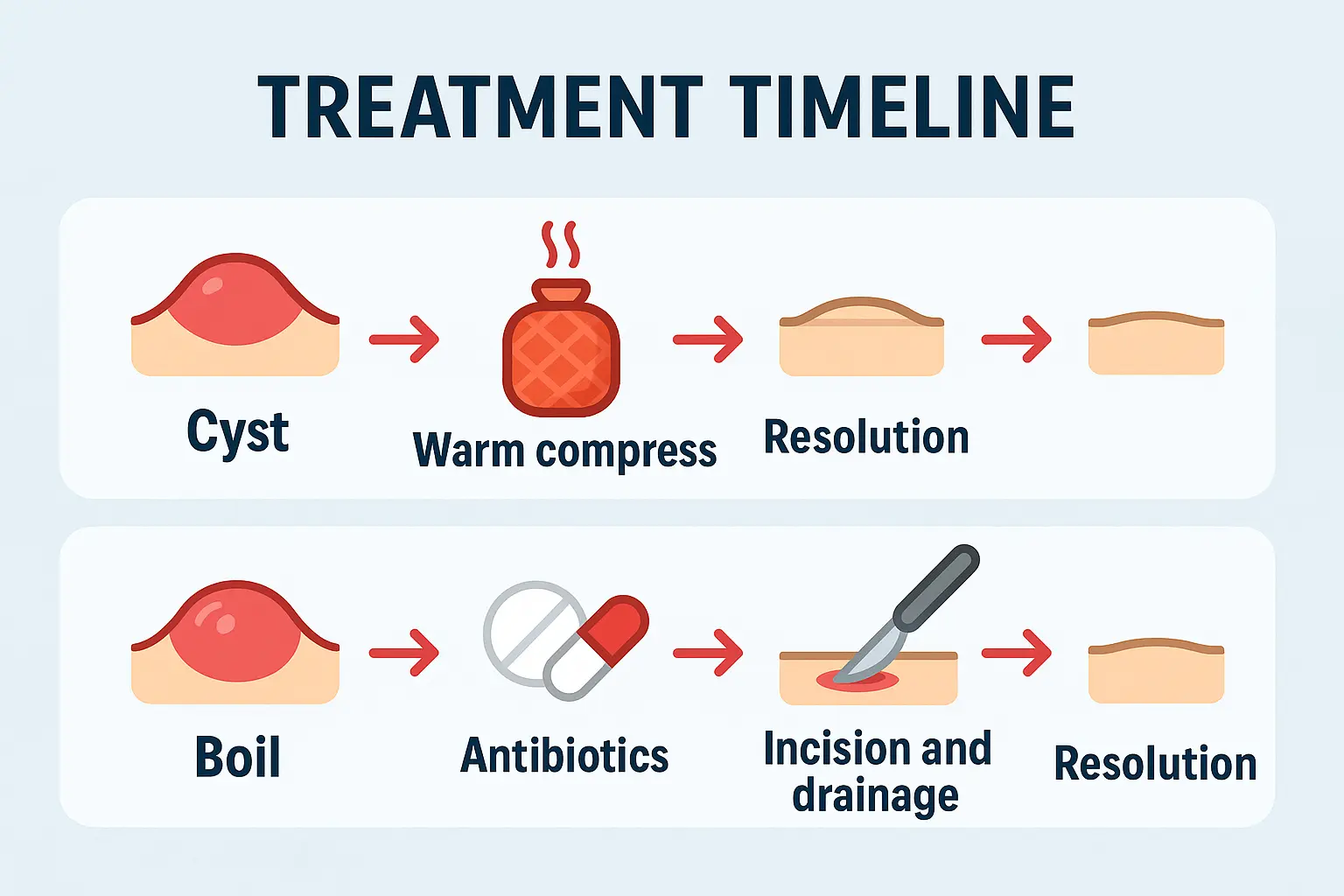
Tea tree oil
Research from 2022 indicates tea tree oil possesses potent antibacterial and antiseptic qualities that may help address the bacteria causing the boil.
Do not apply undiluted tea tree oil to the skin because it can cause a burning sensation. Mix about five drops of tea tree oil with a teaspoon of a carrier oil such as coconut or olive oil.
Soak a cotton swab with the diluted mixture and apply it to the boil two to three times daily; over time the lump should begin to shrink. Discontinue use if you experience burning or any other adverse reaction.
Learn more about the benefits of tea tree oil.
Turmeric
Turmeric powder contains curcumin, known for antibacterial and anti-inflammatory effects. These properties may help a boil heal more quickly.
Although evidence is limited, some studies suggest that turmeric taken orally and applied topically can be useful as an alternative approach.
To drink it, simmer a teaspoon of turmeric powder in water or milk and let it cool; consume this up to three times a day.
For topical use, combine turmeric with water, ginger, or both to form a paste. Apply at least twice daily. Stop using it if skin irritation or other reactions occur.
Learn more about the benefits of turmeric and curcumin.
Castor oil
Castor oil contains ricinoleic acid, a naturally occurring and powerful anti-inflammatory. Coupled with possible antibacterial effects, castor oil can be a practical natural option to try for boils.
Apply a small amount of castor oil directly to the boil at least three times daily until it resolves. Discontinue if you notice any negative skin reaction.
Learn more about the benefits of castor oil.
Neem oil
Neem oil (Indian lilac) may offer antiseptic, antibacterial, and antimicrobial effects that can be useful for treating skin infections.
Apply neem oil directly to the boil three to four times a day, washing your hands before and after each application. Stop use if you experience an adverse reaction.
Learn more about using neem oil on the skin.
Raw onion
Applying raw onion to the skin may have several benefits for boils. Onions are noted for healthful properties, including antibacterial effects that could help guard against infection from an open boil.
Learn about onion’s skin benefits and how to use it.
Fresh garlic
Fresh garlic has antimicrobial qualities that might assist in healing boils and preventing further infection.
Although garlic has long been used in traditional medicine, its exact properties are not fully understood. Some evidence suggests it can help with various skin issues, including wound healing and certain viral or fungal problems.
To use garlic on a boil, crush a clove and apply it to the area, then cover with a cool, damp cloth for about 20 minutes. If no irritation occurs, you can reapply after 12 hours.
Only use garlic on intact skin, not on mucous membranes such as inside the mouth or genital areas, as it can burn delicate tissues.
Learn more about the antimicrobial properties of garlic.
Ginger
Some compounds in ginger have antimicrobial and anti-inflammatory effects. Experts have observed that ginger shows a general antimicrobial action and may help control bacteria and other potential skin pathogens.
There is no direct evidence that applying ginger to a boil will cure it or significantly reduce inflammation.
To use, apply ginger similarly to onion as a poultice. This method can be used with a variety of ingredients.
Learn more about the healing properties of ginger.
Tridax daisy
Tridax daisy, also called coat button, is a flowering plant from the tropical Americas that people commonly consider a weed.
When concentrated into a gel, it has shown potential wound-healing effects. Some research also suggests it may possess antibacterial activity.
While it’s unlikely to cure a boil outright, it may help prevent the infection from worsening. Apply it to the boil the same way as other topical remedies in this list.
Devil’s horsewhip
Devil’s horsewhip is a root native to Africa that has been used traditionally in the Middle East for skin complaints. It has been attributed with antibacterial and anti-inflammatory qualities in folk use.
Other treatment options
Whether you use herbal remedies or not, it’s crucial to keep the area around a boil clean to prevent bacterial buildup and further infection. Proper cleaning is also important if a doctor performs an incision to treat the boil, as it reduces the risk of additional infection. After cleaning, pat the area dry and cover it with sterile gauze.
Keeping bed linens clean — washed in hot water and dried on a hot setting — can help the healing process by reducing microorganisms that might infect the boil.
A boil may resolve on its own with diligent home care, but that’s not always the case. A doctor may need to drain it; otherwise, the infection could spread to adjacent areas or deeper layers of skin, leading to additional boils or possibly life-threatening complications.
If drainage is required, a physician will make a small incision and use sterile gauze to remove pus. This must be done carefully in a sterile setting by a medical professional.
When to see your doctor
If a boil is stubborn, home remedies may not be enough. See a doctor for prescription treatments or to have the boil drained. Seek medical attention if:
- The boil continues to grow despite at-home care.
- After one week of home treatment there’s no improvement.
- The boil reaches the size of a ping-pong ball.
- The skin around the boil is intensely red or shows red streaks moving away from it.
- The boil is extremely painful.
- There are additional lumps close to the boil.
- You experience recurrent boils over several months.
- You have diabetes.
- You notice any adverse reactions after applying topical remedies.
Optum Now is operated by RVO Health. By clicking the link, we may receive a commission. Learn more.
Frequently asked questions
Below are answers to common questions about treating boils at home and promoting healing.
How do I get rid of a boil overnight?
You cannot reliably eliminate a boil overnight. Warm compresses, antibiotic ointments, or topical treatments made from natural ingredients may reduce pain and help the boil become less severe as it heals.
Can I pop a boil?
Experts advise never trying to pop a boil yourself. Squeezing it can force bacteria deeper into the skin and create an infection that could be dangerous.
Can a boil go away without draining?
Many boils need to drain to fully resolve. They may rupture by themselves or be opened by a clinician. You should not attempt to drain a boil yourself because of the risk of worsening infection and other complications.
Can I use over-the-counter antibiotics?
Over-the-counter antibiotic ointments can be soothing and may help prevent infection from spreading on the skin surface. However, the American Osteopathic College of Dermatology (AOCD) notes that topical ointments cannot penetrate a boil, so they won’t cure it.
Learn more about antibiotics for boils.
The bottom line
Home remedies can be effective for small boils when used properly. Talk with your doctor before trying alternative treatments if you have concerns.
If a boil hasn’t improved after a week — or it becomes larger, more painful, or shows signs of infection — see a healthcare provider. Your doctor may lance the boil and prescribe antibiotics to treat the underlying infection. They may also culture pus from the boil to determine the most appropriate antibiotic.

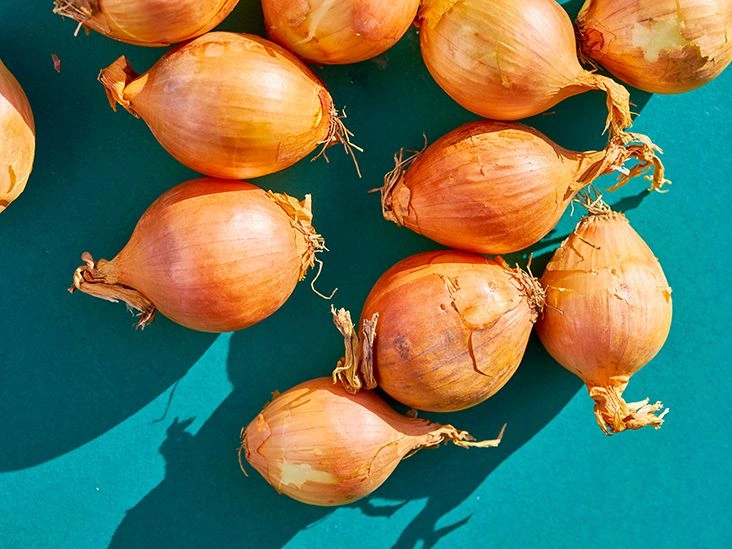
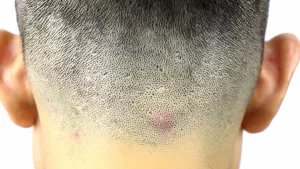
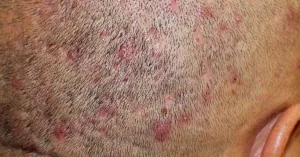


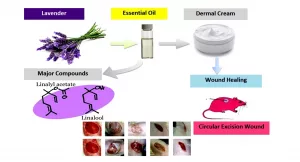
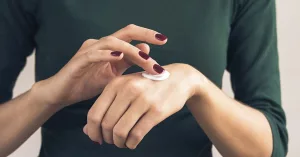

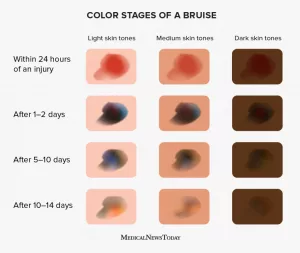



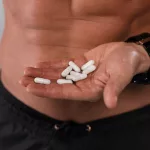



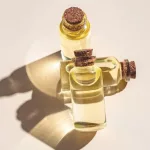




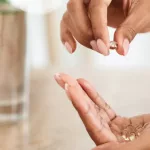
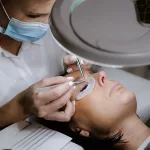
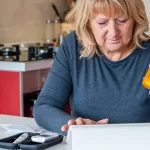
Leave a Reply
You must be logged in to post a comment.